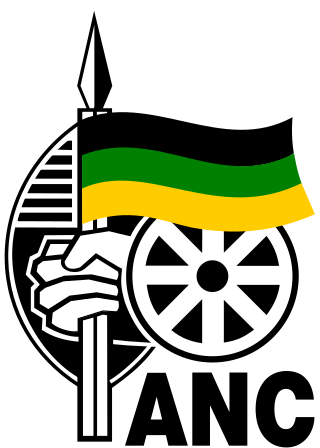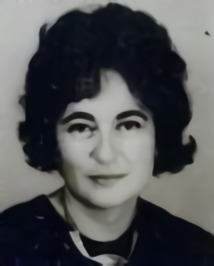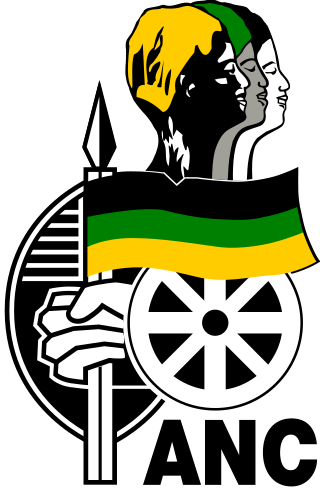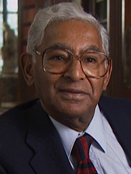Related Research Articles

The African National Congress (ANC) is a social-democratic political party in South Africa. A liberation movement known for its opposition to apartheid, it has governed the country since 1994, when the first post-apartheid election resulted in Nelson Mandela being elected as President of South Africa. Cyril Ramaphosa, the incumbent national President, has served as President of the ANC since 18 December 2017.
Sarah Virginia Wade is a British former professional tennis player. She won three Major tennis singles championships and four major doubles championships, and is the only British woman in history to have won titles at all four majors. She was ranked as high as No. 2 in the world in singles, and No. 1 in the world in doubles.
Dame Janet Suzman, is a South African-born British actress who had a successful early career in the Royal Shakespeare Company, later replaying many Shakespearean roles on television. In her first film, Nicholas and Alexandra (1971), her performance as Empress Alexandra Feodorovna earned her several honours, including a nomination for the Academy Award for Best Actress.

Heloise Ruth First OLG was a South African anti-apartheid activist and scholar. She was assassinated in Mozambique, where she was working in exile, by a parcel bomb built by South African police.

Helen Beatrice Joseph OMSG was a South African anti-apartheid activist. Born in Sussex, England, Helen graduated with a degree in English from the University of London in 1927 and then departed for India, where she taught for three years at Mahbubia School for girls in Hyderabad. In about 1930 she left India for England via South Africa. However, she settled in Durban, where she met and married a dentist, Billie Joseph, whom she later divorced.
The Anti-Apartheid Movement (AAM) was a British organisation that was at the centre of the international movement opposing the South African apartheid system and supporting South Africa's non-White population who were persecuted by the policies of apartheid. The AAM changed its name to ACTSA: Action for Southern Africa in 1994, when South Africa achieved majority rule through free and fair elections, in which all races could vote.
New Age was an influential leftist newspaper in Johannesburg operating from 1953 to 1962. It was formed with the co-operation of a number of left-wing groups in the area; New Age received the assets of the communist Jewish Worker's Club, which had been liquidated in 1948. The newspaper later received support from a committee of the anti-apartheid South African Students' Association.

Thomas Oliver Newnham was a New Zealand political activist and educationalist. He was involved in several left wing causes: attacking institutional racism in New Zealand, and opposing the 1981 Springbok Tour and apartheid in general.

The African National Congress Women's League (ANCWL) is an auxiliary women's political organization of the African National Congress (ANC) of South Africa. This organization has its precedent in the Bantu Women's League, and it oscillated from being the Women's Section to the Women's League from its founding, through the exile years, and in a post-apartheid South Africa. After women were allowed to become members of the ANC in 1943, the ANCWL was created as the means by which Black South African women could contribute to the national liberation struggle by channeling Black women's political activity into the ANC by way of the ANCWL.

The United States and South Africa currently maintain bilateral relations with one another. The United States and South Africa have been economically linked to one another since the late 18th century which has continued into the 21st century. United States and South Africa relations faced periods of strain throughout the 20th century due to the segregationist, white minority rule in South Africa, from 1948 to 1994. Following the end of apartheid in South Africa, the United States and South Africa have developed a strategically, politically, and economically beneficial relationship with one another and currently enjoy "cordial relations" despite "occasional strains". South Africa remains the United States' largest trading partner in Africa as of 2019.
Ros de Lanerolle, also known as Rosalynde Ainslie, was a South African activist, journalist and publisher. Having settled in Britain in the 1950s, she campaigned actively against apartheid, and later became a pioneering figure in women's publishing in the UK, called by Florence Howe "the doyenne of feminist publishers".

Catherine Nettleton is a British diplomat who has been ambassador to Peru, ambassador to Venezuela, and UK Representative in Taiwan.
Chinyere Adah "Chi-Chi" Nwanoku is a British double bassist and professor of Historical Double Bass Studies at the Royal Academy of Music. Nwanoku was a founder member and principal bassist of the Orchestra of the Age of Enlightenment, a position she held for 30 years.
Ethel de Keyser OBE OLG was a South African anti-apartheid activist based in London, England.

Sonia Bunting, OLS was a South African journalist, and a political and anti-apartheid activist. After being charged with treason and imprisoned, being detained a second time, and barred from publishing, she and her husband went into exile in London, where she joined the Anti-Apartheid Movement (AAM) and organised the World Campaign for the Release of South African Political Prisoners. When the African National Congress (ANC) ban was lifted in 1991, she returned to South Africa where she was involved in political activism until her death in 2001. She was posthumously honored by the government of South Africa with the Order of Luthuli in Silver in 2010.

South Africa–Sweden relations refers to the bilateral relations between Sweden and South Africa. Formal relations between the two countries began with the opening of a South African legation in the 1930s with relations being upgraded to ambassadorial level in 1994 following South Africa's first non-racial democratic elections. In 2000 a South African - Swedish Binational Commission was established by President Thabo Mbeki and Prime Minister Göran Persson.
Mohamed Hanef Bhamjee OBE, known as HanefBhamjee, was a South African–British campaigner and organiser in the British Anti-Apartheid Movement and Secretary of the Wales Anti-Apartheid Movement from 1981 to 1994.
Uzoamaka Linda Iwobi FLSW is a British-Nigerian solicitor and equalities practitioner. She is the former Specialist Policy Adviser on Equalities to the Welsh Government, an Honorary Fellow at the University of Wales Trinity St David and founder, secretary and former chief executive officer at Race Council Cymru. She is also Vice President of the Royal Welsh College of Music & Drama.

Vella Pillay was a South African international economist and a founding member of the British Anti-Apartheid Movement. He was a member of the South African Communist Party and coordinated the party's overseas activities from London when it was banned by the South African government. As a chairman of the editorial committee of Anti-Apartheid News, he wrote extensively on the South African economy under the apartheid regime.
The anti-apartheid movement was a worldwide effort to end South Africa's apartheid regime and its oppressive policies of racial segregation. The movement emerged after the National Party government in South Africa won the election of 1948 and enforced a system of racial segregation through legislation. Opposition to the apartheid system came from both within South Africa and the international community, in particular Great Britain and the United States. The anti-apartheid movement consisted of a series of demonstrations, economic divestment, and boycotts against South Africa. In the United States, anti-apartheid efforts were initiated primarily by nongovernmental human rights organizations. On the other hand, state and federal governments were reluctant to support the call for sanctions against South Africa due to increasing Cold War demands and profitable economic ties. The rift between public condemnation of apartheid and the U.S government's continued support of the South African government delayed efforts to negotiate a peaceful transfer to majority rule. Eventually, a congressional override of President Reagan's veto resulted in passage of the Comprehensive Anti-Apartheid Act in 1986. However, the extent to which the anti-apartheid movement contributed to the downfall of apartheid in 1994 remains under debate.
References
- ↑ Henley, John (12 March 2014). "The Anti-Apartheid Movement goes online: a unique archive of the struggle". The Guardian. Retrieved 4 November 2018.
- ↑ Taylor, Rebecca (21 August 2007). "Looking back on the Anti-Apartheid Movement". Time Out London . Archived from the original on 22 December 2019. Retrieved 4 November 2018.
- ↑ "Forward to Freedom". British Universities Film & Video Council . 28 January 2015. Retrieved 4 November 2018.
- ↑ "Birthday Honours 2014: the Prime Minister's list" (PDF). gov.uk . Retrieved 4 November 2018.
- ↑ "Announcement of the 2023 National Order Awards nominated names by Director-General of The Presidency, Phindile Baleni". Presidency of South Africa. 16 April 2023. Retrieved 30 April 2023.